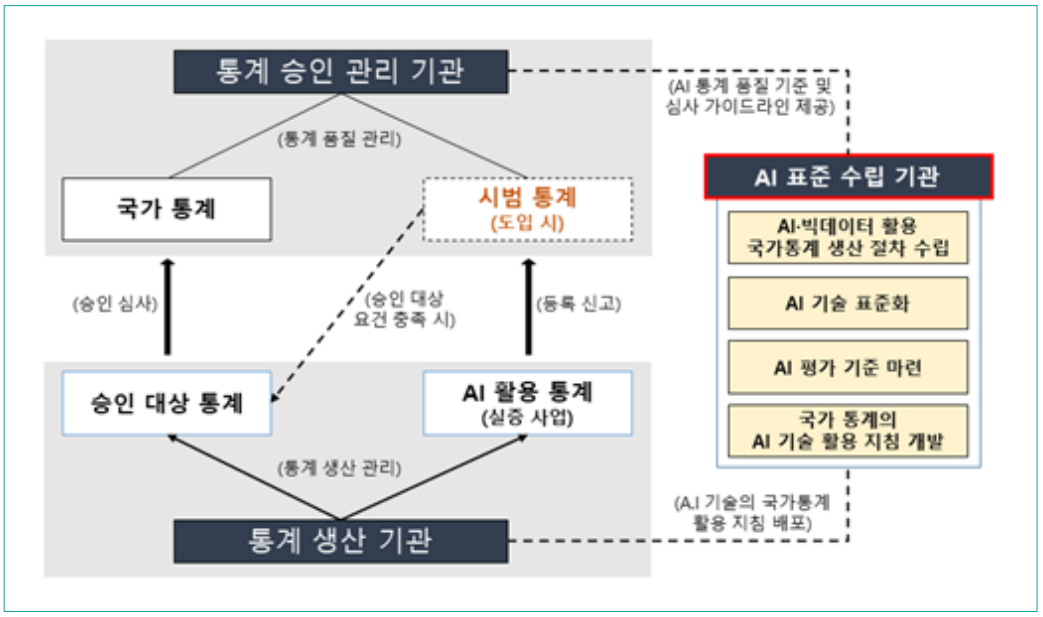| 구분 | 예상 쟁점 | 시사점 |
|---|---|---|
| 신규 통계 생산 | AI·빅데이터 기반의 분석결과에 관한 신뢰가 보편적으로 형성되지 않음 | 신규 통계 생산 시 활용에 적합한 검증된 알고리즘을 공표하고 이에 대한 세부적인 활용 지침 마련이 요구 |
| 신규 통계의 생산방식은 기존의 통계 생산 프레임워크에 맞추어 해석하기에 적합하지 않음 | 빅데이터 분석 프로세스를 포괄할 수 있는 통계프로세스 표준의 개정 고려 | |
| 재현 불가능한 비결정론적(Non-deterministic) 알고리즘 기반의 결과를 국가통계로 관리 가능한지 여부 | 인공지능 기술의 특성 분석 및 표준화된 평가 기준 정립이 요구됨 | |
| 통계 생산 프로세스의 현대화 |
기존의 방법 대비 우수성을 객관적으로 비교가능한가 | 전통적 통계 기법-AI 알고리즘의 비교 검증 방안 발굴이 필요 |
| AI 기술 도입은 통계 생산부터 공표까지의 제한된 생산 기간을 준수할 수 있는 해법인가 | 다수의 실증 사업을 통한 도입 적합성 진단 필요 |

| Categorization | Expected issues | Implications |
|---|---|---|
| New statistical | Trust in analysis results based on AI and Big data is not universally formed | When producing new statistics, it is necessary to publish proven algorithms that are suitable for utilization and to provide detailed utilization guidelines. |
| The production method of new statistics is not suitable to be interpreted in accordance with the existing statistical production framework | Consider amending statistical process standards that can encompass the Big data analysis process | |
| Whether results based on non-deterministic algorithms that cannot be reproducible are manageable as national statistics | Characteristic analysis of artificial intelligence technology and establishment of standardized evaluation criteria are required | |
| Modernization of statistical production processes |
Is it possible to objectively compare excellence compared to existing methods? | Discovering methods of comparison verification of Traditional statistical techniques-AI algorithms is required |
| Is the adoption of AI technology a solution to comply with the limited production period from statistical production to publication? | Need to diagnose suitability of adoption through a number of demonstration projects |